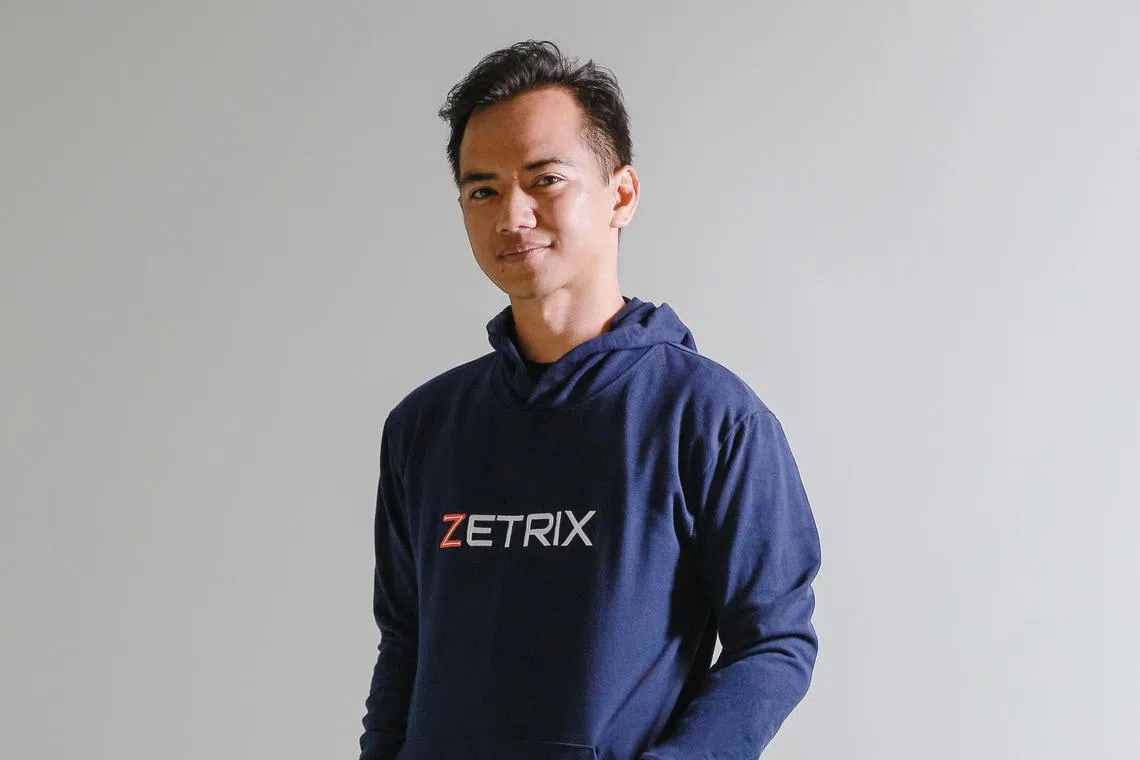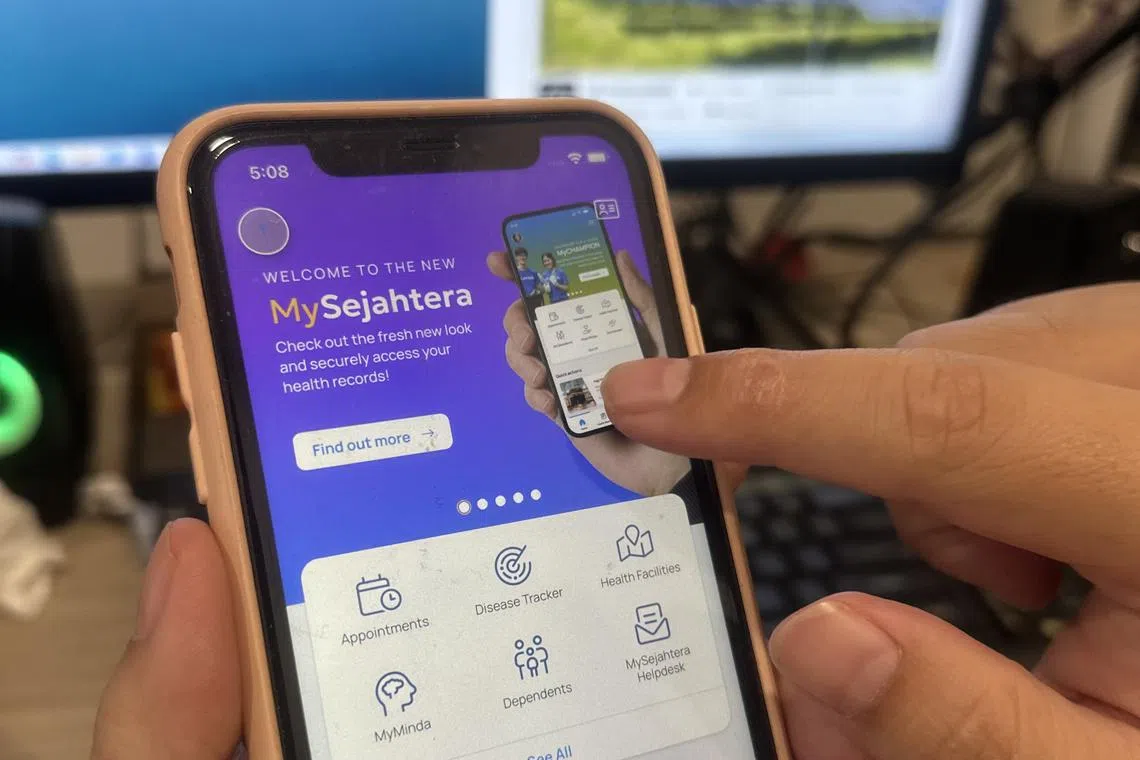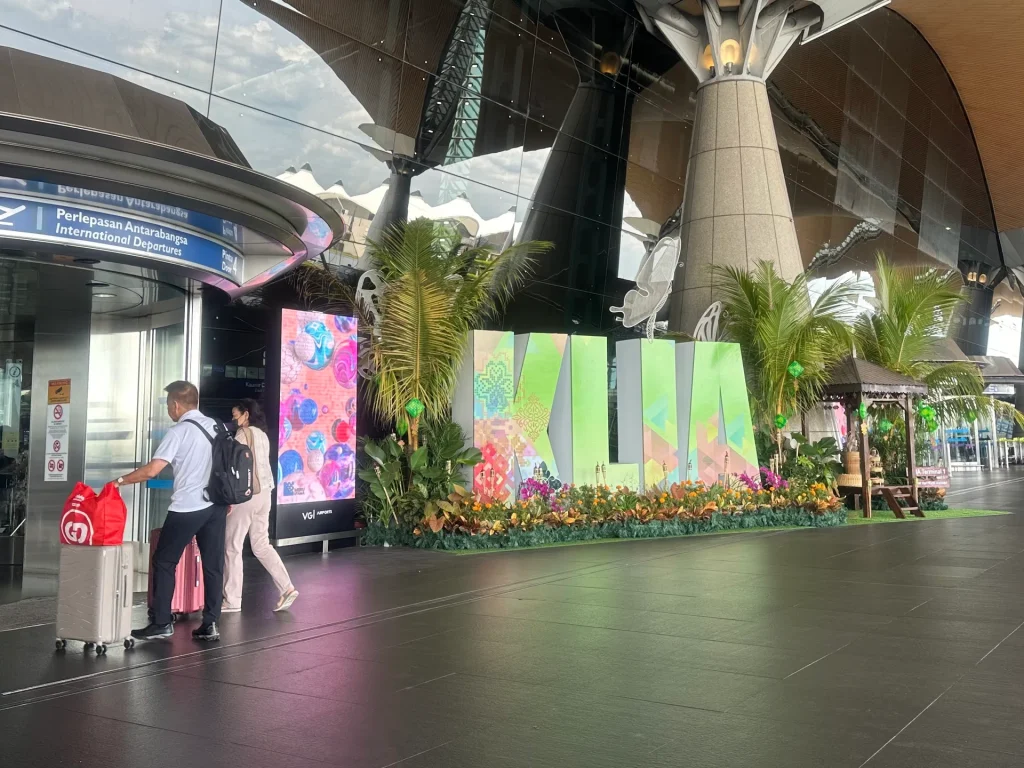[KUALA LUMPUR] Fumbling for passports at immigration checkpoints may soon be a thing of the past for Malaysians, as the country pilots systems that could one day replace passports and paperwork with QR codes and digital credentials.
The government, through tech agency Malaysian Institute of Microelectronic Systems, has partnered local blockchain company Zetrix AI to build integrated digital identity management on the Malaysia Blockchain Infrastructure (MBI).
The initiative, anchored by the MyDigital ID system, explores blockchain as the backbone of secure identity verification.
Fadzli Shah, co-founder of Bursa Malaysia-listed Zetrix AI, said the national digital ID system is being developed to enhance security, prevent fraud and provide citizens with seamless access to government services, including immigration clearance.
“If everything goes as planned, Malaysia will be able to connect its digital identity systems with partners such as Singapore and, potentially, China and the United States – maybe in three or five years,” said Fadzli, who is also a former chief strategy officer of the Malaysia Digital Economy Corporation.
He pointed to MyBorderPass app – the QR code-based identity system now streamlining immigration clearance – as an example. For now, the app’s use is limited to Malaysian citizens at its borders, including the Malaysia-Singapore land checkpoints.
A NEWSLETTER FOR YOU

Friday, 8.30 am
Asean Business
Business insights centering on South-east Asia’s fast-growing economies.
The mobile app generates a digital code that users can present at immigration checkpoints. Besides enabling quicker clearance, this shortens cross-border processes from hours to just under a minute.
Home Minister Saifuddin Nasution Ismail has said that MyBorderPass usage will be expanded to all Malaysian borders from Jan 1, 2026, allowing travellers from 63 countries and territories to use the app’s QR code system for immigration clearance.
On the Singapore side, travellers arriving and departing via Singapore land checkpoints can present the QR codes generated via the MyICA mobile app in lieu of passports.
Indonesia, meanwhile, also introduced the All Indonesia app to simplify the immigration clearance for international passengers. Starting from Sep 1, travellers arriving at Indonesian airports, including Bali, and ferry checkpoints in Batam, are required to use this new mobile app to complete the arrival declaration.

For Malaysia, it has not been altogether smooth sailing.
The country began trialling QR-based identity systems last year through apps such as MyTrip, MyRentas and MyBorderPass, with the intention to streamline cross-border clearance with Singapore.
But the multiple app options created confusion instead: MyRentas was used for car crossings at the Johor-Singapore Causeway, while MyTrip was tested at the Second Link. MyBorderPass, meanwhile, was previously only for motorcyclists travelling through the Causeway.
The hope, then, is for MBI’s national digital ID system to alleviate such confusion and speed up passportless travel for Malaysians.
“MySejahtera was a huge missed opportunity. We could have built on the public’s familiarity with scanning a QR code and created a unified platform for digital citizen services – everything from medical records to identity verification.”
—
Fadzli Shah, co-founder of Zetrix AI
That future may be closer than many realise, as global standards are already taking shape. The United Nations has endorsed verifiable credentials as a framework for trusted cross-border data.
The World Wide Web Consortium has also laid out protocols for decentralised identifiers and self-sovereign identity, giving users full control over how their digital credentials are used and verified.
From MySejahtera to missed opportunity
Co-founded by Fadzli and TS Wong, Zetrix AI was previously known as My EG Services. The company rebranded in July this year to signal a pivot from its roots in e-government services to a growing focus on blockchain and artificial intelligence.
Zetrix AI, which has a market value of nearly RM7 billion (S$2.1 billion) as at Sep 1, is a Malaysia-based layer-1 public blockchain network. It provides the architecture for MBI, which aims to unify fragmented digital ecosystems by enabling seamless cross-chain and cross-border transactions with enterprise-grade security and scalability.
For the first six months of FY2025, Zetrix AI posted a 19 per cent year-on-year growth in net profit to RM381 million.
Its revenue for the period rose 28 per cent year on year to nearly RM608 million, driven by contributions from Web3 application service fees from blockchain platforms such as MBI, ZTrade and ZCert, as well as digital ID registrations and transactions.

Fadzli noted that Malaysia is among the tech-forward Asean nations – alongside Singapore and Thailand – poised to adopt these standards early.
This could set the foundation for interoperable digital identity frameworks across the region – a potential game changer for tourism, trade and e-government services, he said.
Malaysia’s pandemic-era health app, MySejahtera, gave the country an early lead in public-facing digital infrastructure as a digital ID with QR-based contact tracing, vaccination certificates and user verification during the Covid-19 pandemic.
But its early years were clouded by questions over the ownership of the app, developed by Entomo Malaysia (formerly KPISoft) in collaboration with government agencies. Ultimately, the momentum fizzled.
“MySejahtera was a huge missed opportunity,” said Fadzli. “We could have built on the public’s familiarity with scanning a QR code and created a unified platform for digital citizen services – everything from medical records to identity verification.”
The goal now is to build on that foundation, he added, but this time with interoperability designed from the ground up. This would enable connections across government agencies, international borders and even different blockchains.
Malaysia’s public-private strategy

MBI is a test for how Malaysia will structure its digital economy.
“Too many of our tech efforts have a ‘jaguh kampung’ (‘local hero’) mindset – trying to win the home market only. But blockchain isn’t built for one country. Malaysia must think globally from the start,” said Fadzli.
Veteran banker and economist Andrew Sheng echoed this sentiment, emphasising that the effort must be understood as a whole-of-nation digital public infrastructure, and not just a blockchain pilot.
“You can’t just have a payment blockchain and forget customs, logistics, tax or data standards,” he said. “If another country gets it right first, Malaysia risks falling behind in trade competitiveness.”
Both he and Fadzli agree that success depends on cross-sector coordination – between ministries, private firms and international bodies. They also caution against the common Malaysian pitfall of treating the domestic market as the end goal.
Blockchain beyond crypto
Based on the National Blockchain Roadmap 2021-2025 by the Ministry of Science, Technology and Innovation, one of MBI’s most important contributions may be its reframing of blockchain in the public imagination.
In Malaysia, as in much of the world, blockchain is often associated with cryptocurrency speculation and scams.
“You can’t just have a payment blockchain and forget customs, logistics, tax or data standards. If another country gets it right first, Malaysia risks falling behind in trade competitiveness.”
—
Veteran banker and economist Andrew Sheng
MBI, by contrast, decouples blockchain from Bitcoin and embeds it in real-world services, such as subsidy distribution, digital ID, trade compliance and data provenance, said Fadzli.
One significant example already in use is Malaysia’s vaccine traceability system, he noted, which uses blockchain to track every vial from manufacturer to patient. The system was quietly built into the national immunisation plan and showed its effectiveness in the face of supply-chain irregularities.
“If someone got sick from a vaccine dose, the Health Ministry could trace it back immediately – down to the manufacturing plant, the shipment, the batch of vaccine and the other recipients,” said Fadzli. “That’s the kind of auditability you can’t get with paper records.”
The MBI platform uses a public-permissioned blockchain, which means anyone can view and interact with it, but only authorised parties can make changes to ensure reliability and national security, he noted. “It’s the best of both worlds. It allows us to meet global standards while maintaining control over national security and identity.”


